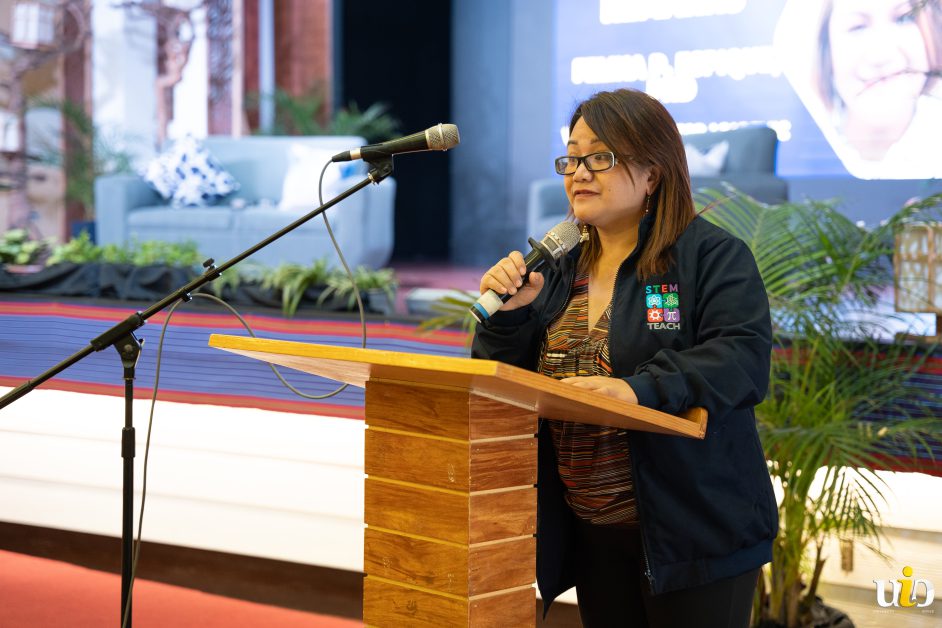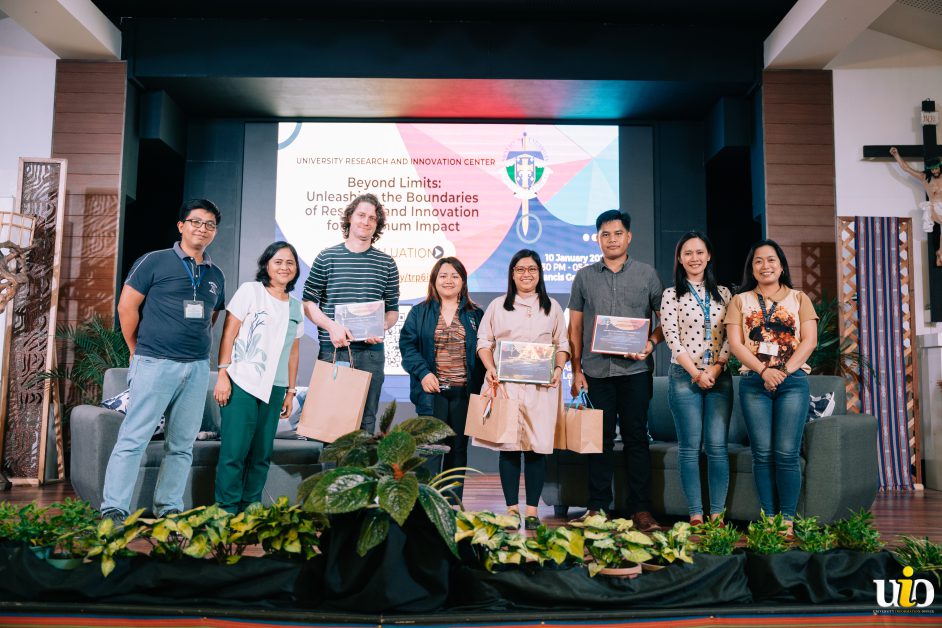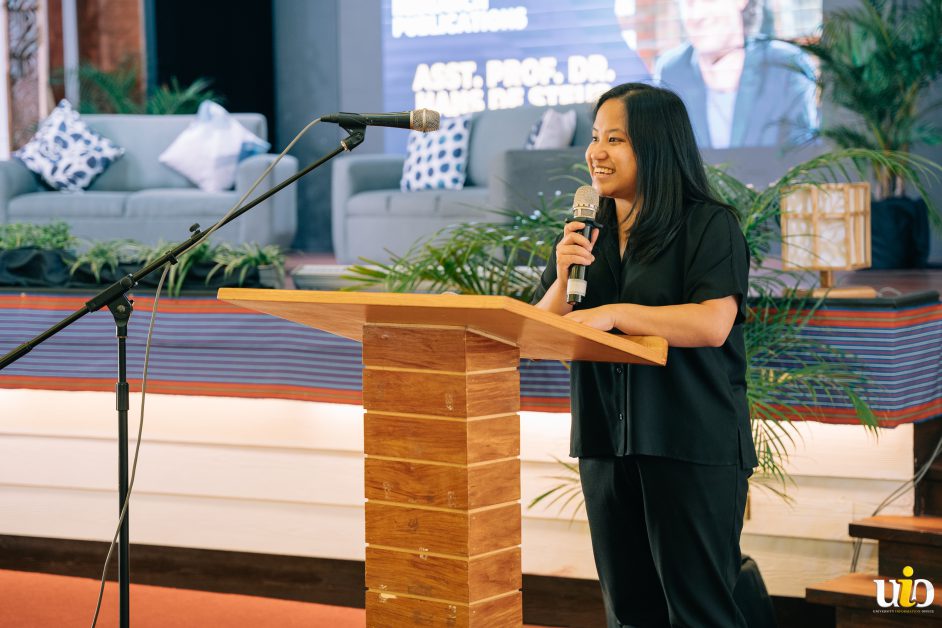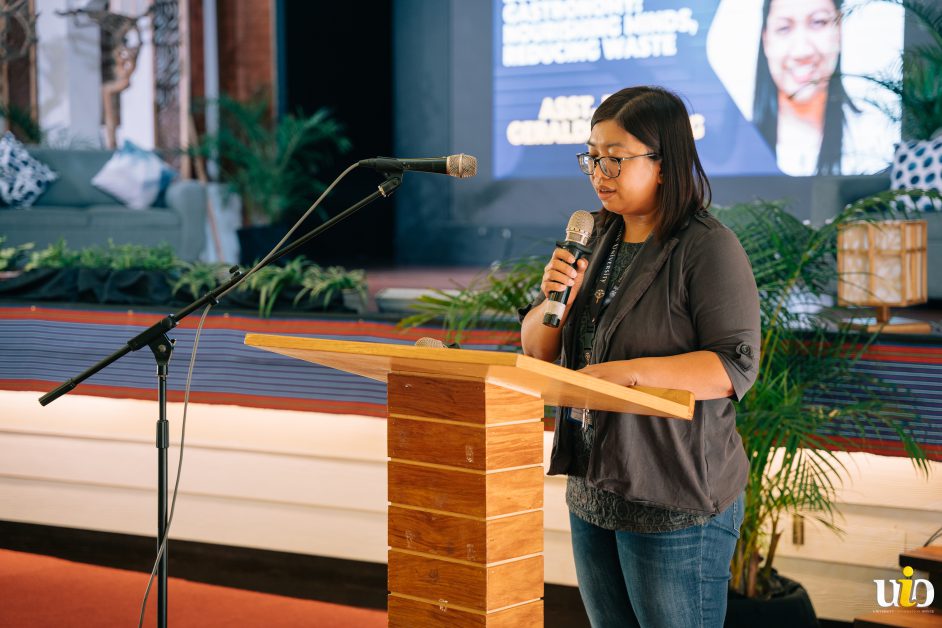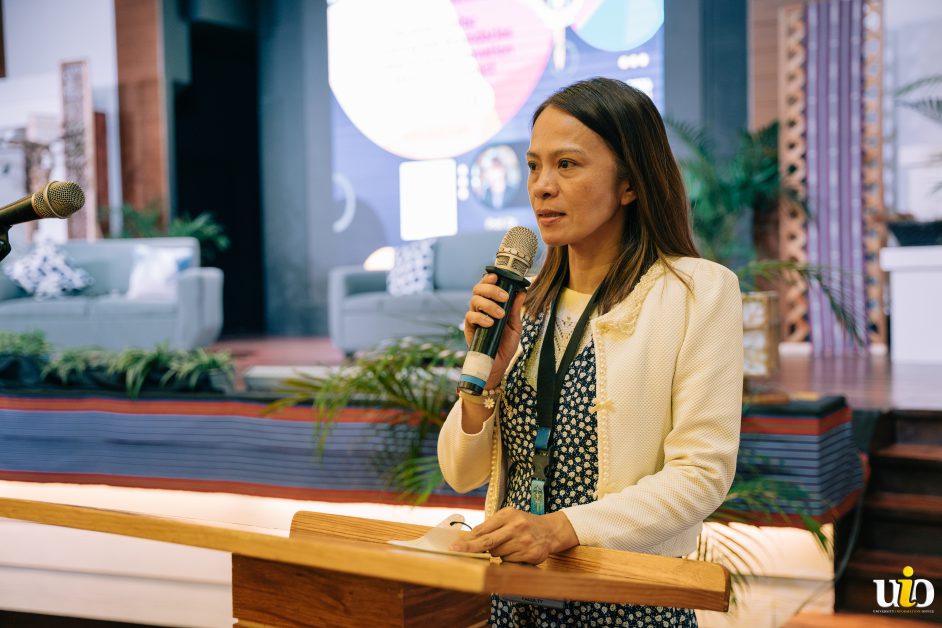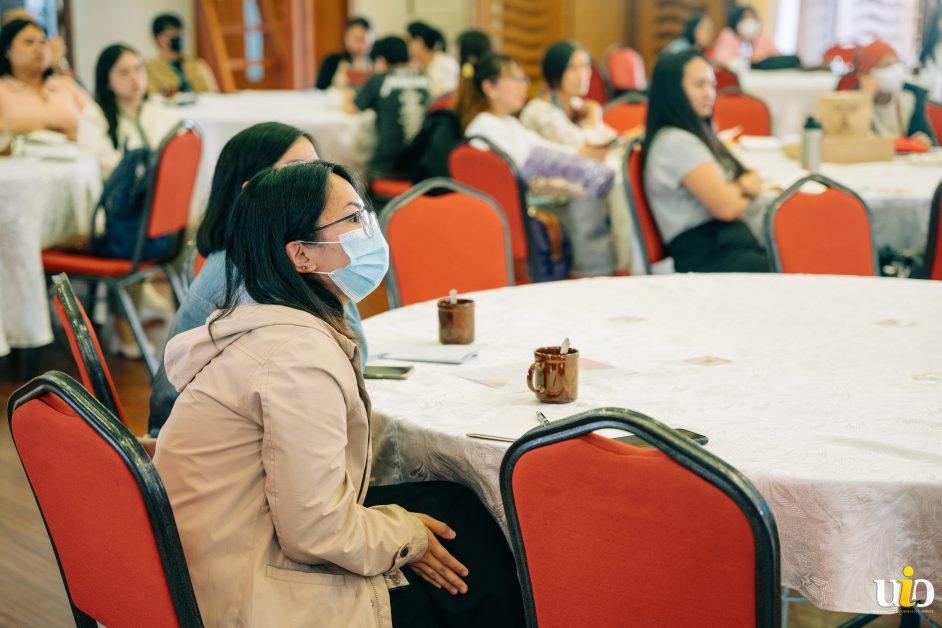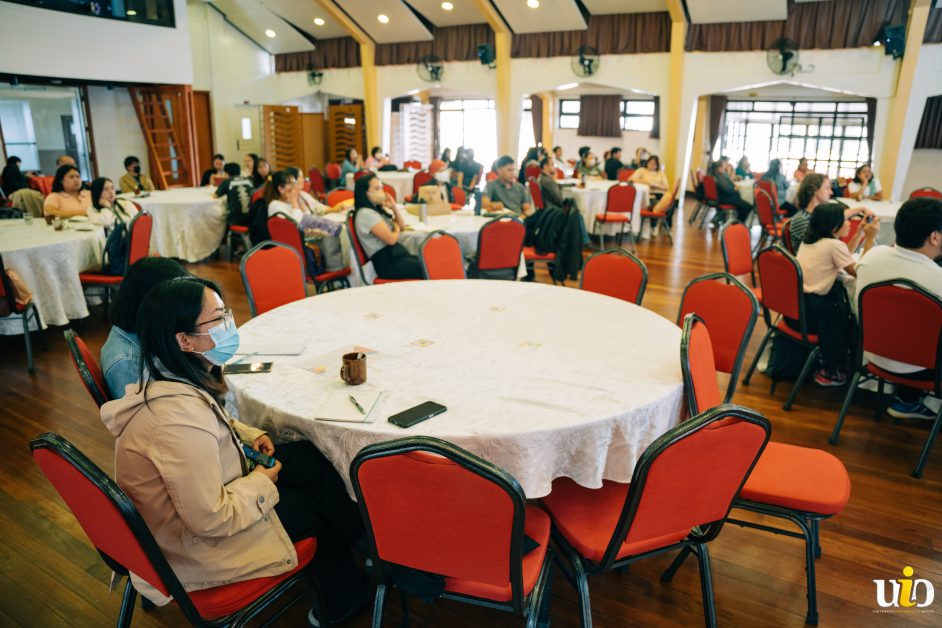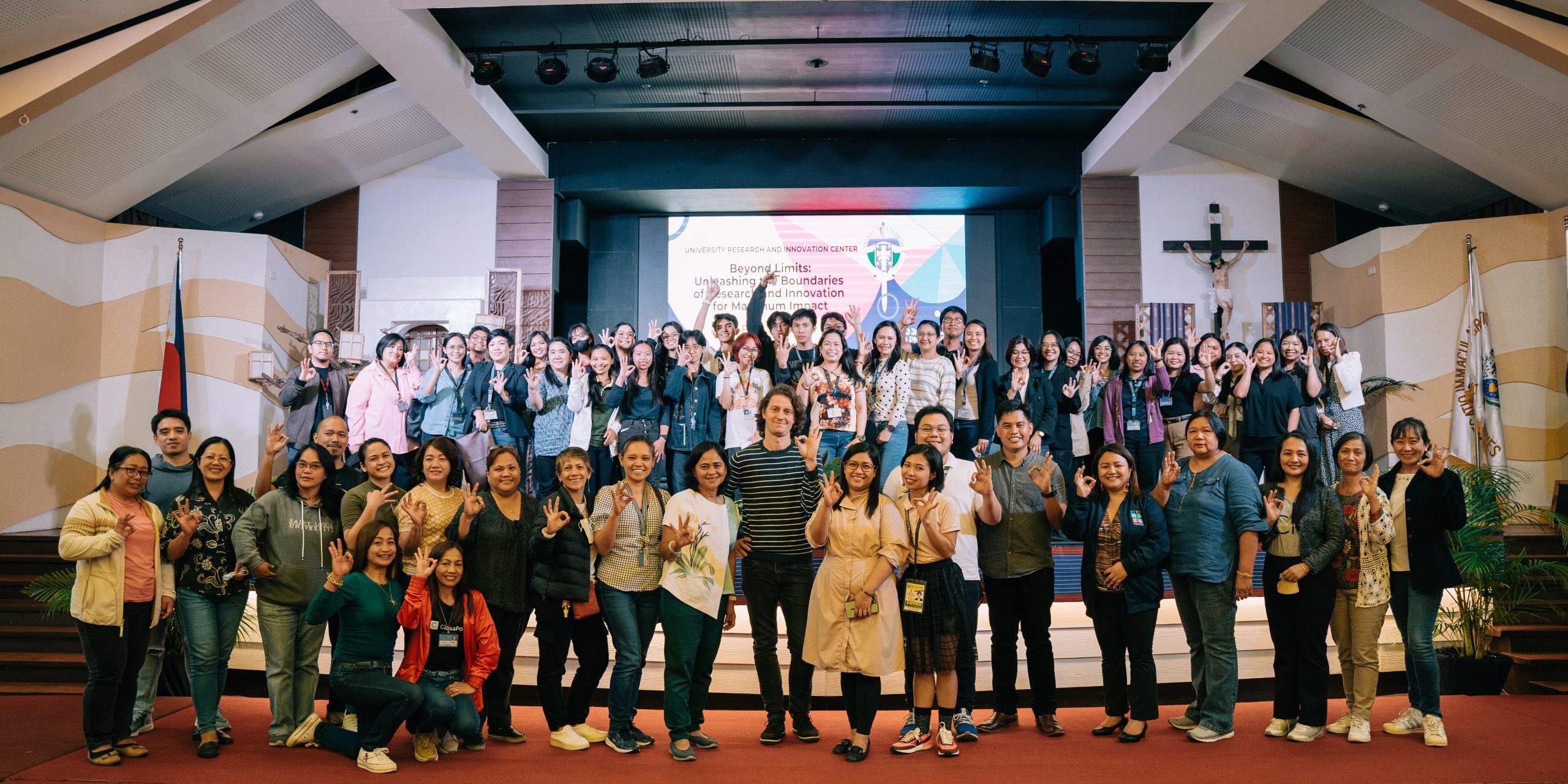In line with Saint Louis University’s commitment to sustainability that goes beyond academic pursuits, its University Research and Innovation Center (UnRIC) conducted a training session titled “Beyond Limits: Unleashing the Boundaries of Research and Innovation for Maximum Impact” on 10 January 2024 that centered on the importance of research publication and innovation in sustainable gastronomy and food upcycling.
Held at the Fr. Francis Gevers Hall, Diego Silang Building, SLU, the knowledge-sharing sessions gathered participants from the SLU Basic Education School (BEdS), School of Nursing, Allied Health, and Biological Sciences (SONAHBS), School of Engineering and Architecture (SEA), School of Teacher Education and Liberal Arts (STELA), and School of Accountancy, Management, Computing and Information Studies (SAMCIS).
The training was conducted in line with the Food Upcycling Project – a two-year project that began on 1 September 2023 that was granted to selected faculty members namely: Dr. Richel Lamadrid (UNRIC, Project Leader), Ms. Mary Luz Fiangaan and Dr. Jannet Razo of SONAHBS, and Engr. Daphe Leal of SEA. The said project is funded by Vlaamse Interuniversitaire Raad Universitaire Ontwikkelingssamenwerking (VLIR UOS) or the Flemish Interuniversities Council University Development Co-operation. VLIR UOS supports partnerships between Flemish universities or universities of applied sciences and arts in Flanders, Belgium, and partner countries that work towards finding answers to global and local challenges.
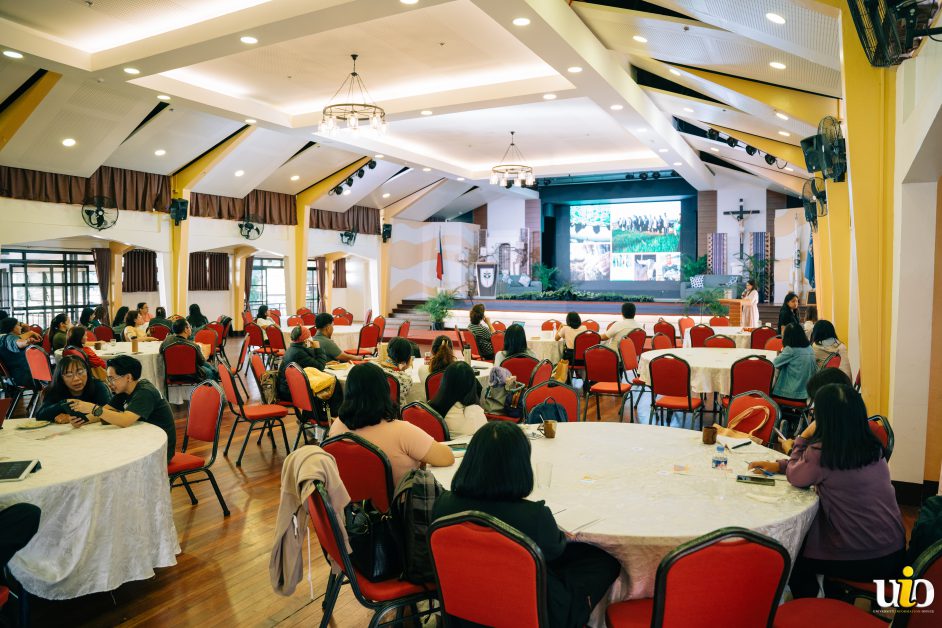
The event provided faculty members and teachers with insights and mentorship on enhancing research and publication skills. It sought to actively involve the communities in sustainable practices, reducing food waste, and promoting environmental stewardship that directly responded to the Laudato Si goals and United Nations Sustainable Development Goals 2 (Zero Hunger), 11 (Sustainable Cities and Communities, 12 (Responsible Consumption and Production), 13 (Climate Action), and 17 (Partnership for the Goals). The CICM Advocacy on Justice, Peace, and Integrity of Creation is also affirmed.
In his welcome remarks, Rev. Fr. Gilbert B. Sales, CICM, stated that universities as hubs of research and knowledge play a pivotal role in bridging academia with practical implementation in food upcycling projects. He underscored that “at the heart of any successful food upcycling project lies a foundation built upon rigorous research” that serves as a compass in a project’s design, implementation, and assessment. By integrating research into food upcycling initiatives, universities can establish on-campus upcycling facilities, creating a model for sustainability that can be replicated in communities.
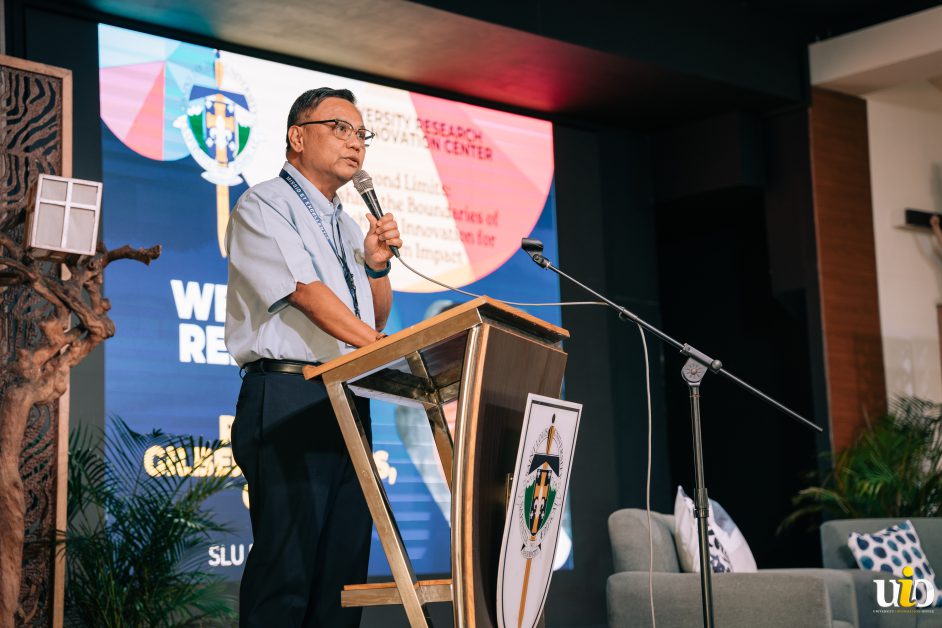
The discourses of the esteemed resource speakers during the sessions emphasized community involvement and participatory action in caring for creation through research and food upcycling.
Dr. Hans De Steur, Assistant professor in Qualitative Research Methods in Socio-Economics at the Division of Agri-Food Marketing & Chain Management of the Department of Economics at Ghent University, Belgium, began the series with his topic, “Elevating Scholarly Works: Learning from World-Class Practices in Research Publications”. With his extensive work and experience in research publication, Dr. De Steur delved into the what, how, and most importantly, the why of academic writing and publishing. His presentation helped researchers navigate the publication process from writing, submission, revision, and review.
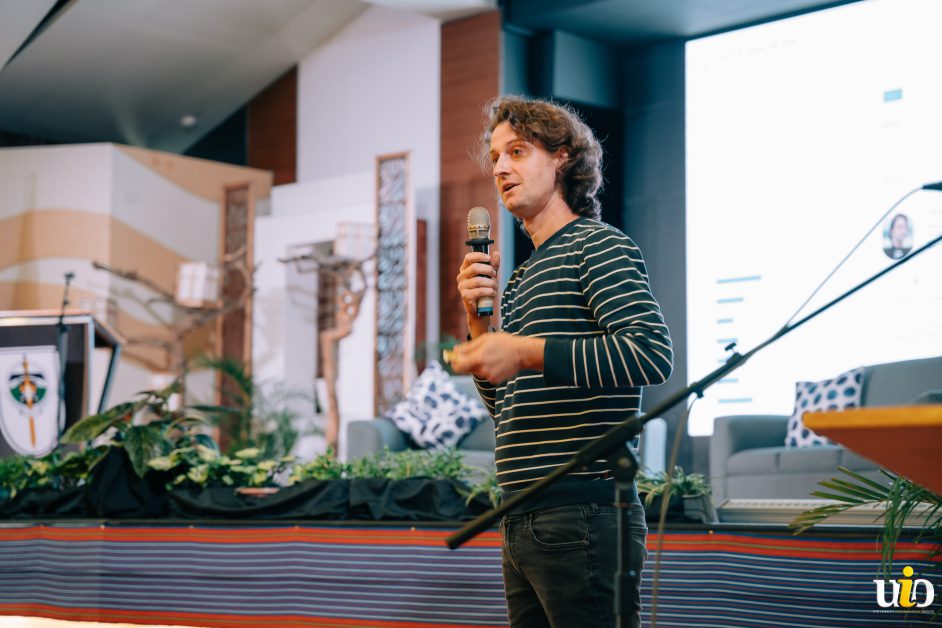
The recommendations he gave served as a practical guide on how to craft a novel research article that brings in research funding and builds synergies within the research and scientific community while creating impact in addressing global issues. “Justify your ‘why’. Show that you are innovative and justify why you are innovative. If you write an article that people are interested in reading, you can make an impact. You can make a massive difference if you are cited. Don’t give up.” Prof. Hans stated.
The second session on “Sustainable Gastronomy: Nourishing Minds, Reducing Waste” focused on the work of Asst. Prof. Geraldine Tayag, a College Research Coordinator in the College of Home Science and Industry of Central Luzon State University (CLSU). She discussed the importance of sustainable gastronomy and how to valorize food resources through innovation. As a food scientists, she shared researches that provided solutions to the problem of food waste by providing value through scientific and innovative processes: “Sensory Analysis and Nutritional Evaluation of Least-cost Formulated Saba banana Peel-Incorporated Hamburger Patty”, “Optimization of Coconut Residue as Flour by D-Optimal Mixture Design”, “Utilization of Mango Peels as Source of Pectin” and “Extraction, Characterization and Application of Indian Mango Peel Pectin”, her study that garnered a research distinction.
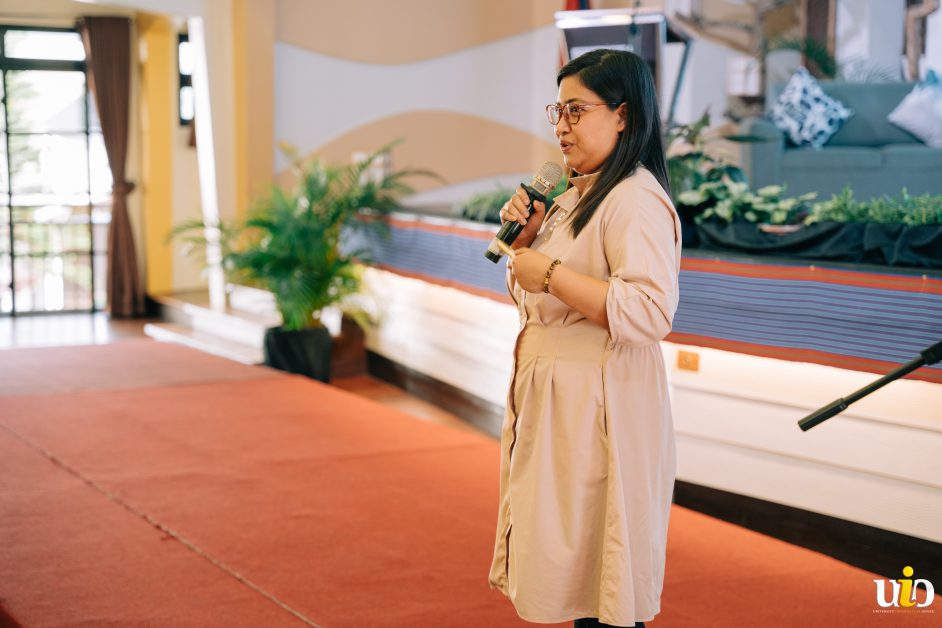
“As food technologists in the university,” Prof. Tayag said, “our main goal is to patent the product first prior publication, then (proceed with) commercialization and finding potential adaptors.” A research output is not valuable if not transferred to a community, or an adaptor that will commercialize the innovated product, she said. If valorized food resources are commercialized, food waste is significantly addressed.
The last session of the day was facilitated by Assoc. Prof. Lesley Dale Umayat, Director of the Food Science Research Innovation Center at Benguet State University. A farmer by practice, Prof. Umayat’s talk, “From Trash to treasure: Paving Pathways for Food Upcycling to Curb Post-Harvest Losses in the Vegetable Supply Chain of CAR” went in depth in the problem with surplus and post-harvest losses. The work they do in the Food Science Research and Innovation Center accommodates off-size vegetables during peak seasons where prices are lower than farmage prices.
Post-harvest losses can be curbed by processing technology facilities and alternative markets. The challenge, he said, is to “develop more technologies for vegetable preservation. “Farmers need us, food scientists, and academicians, to help them,” said Prof. Umayat. He expressed that the goal is to develop or innovate a product out of surplus and post-harvest losses, then transfer this to an industry for commercialization. This helps the cause of farmers. It is important that “we create industry.”
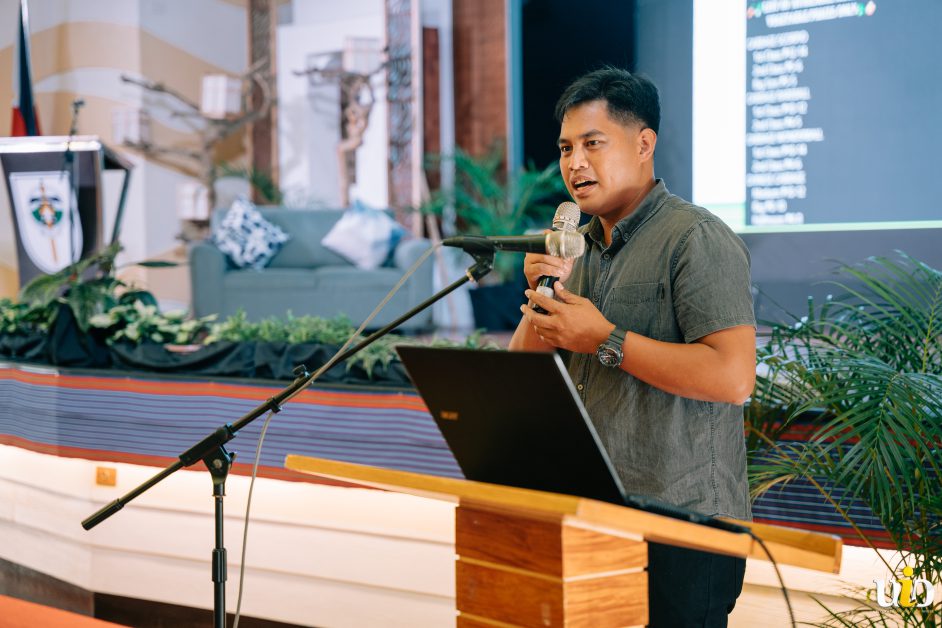
The afternoon’s discourses were tied up by a Fireside Chat on Food Research and Innovation facilitated by Dr. Richel Lamadrid. Participants in the training were given the opportunity to ask questions and engage in meaningful conversations with the esteemed speakers in connection with the shared goal in looking for answers to economical and social challenges related to food, gastronomy, and agriculture through innovation and upcycling.
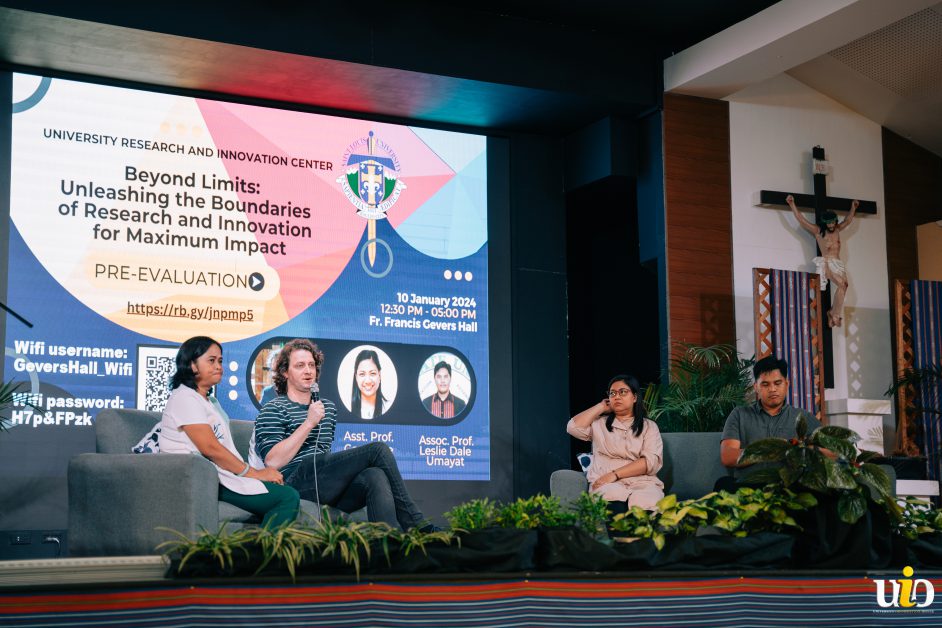
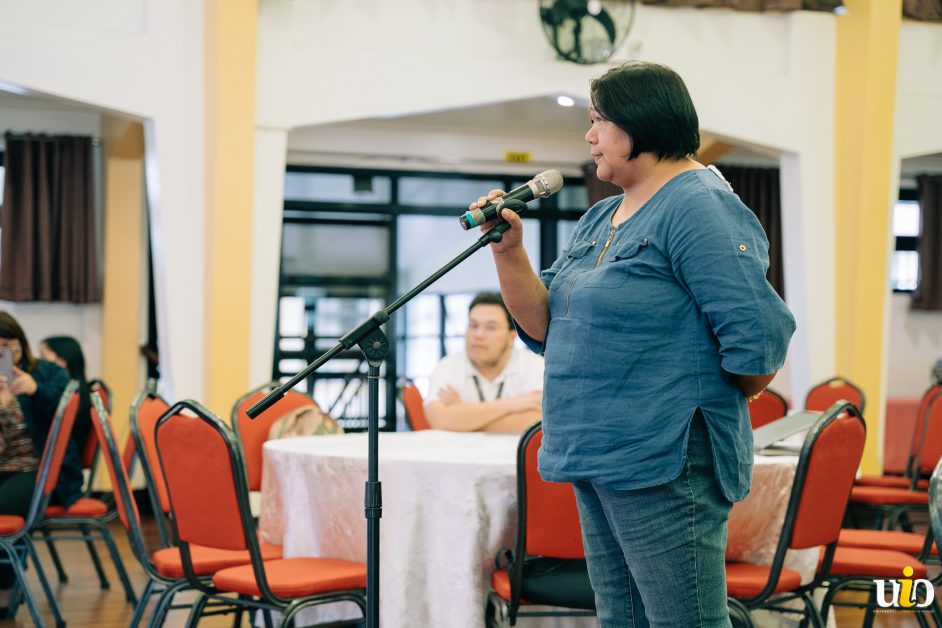
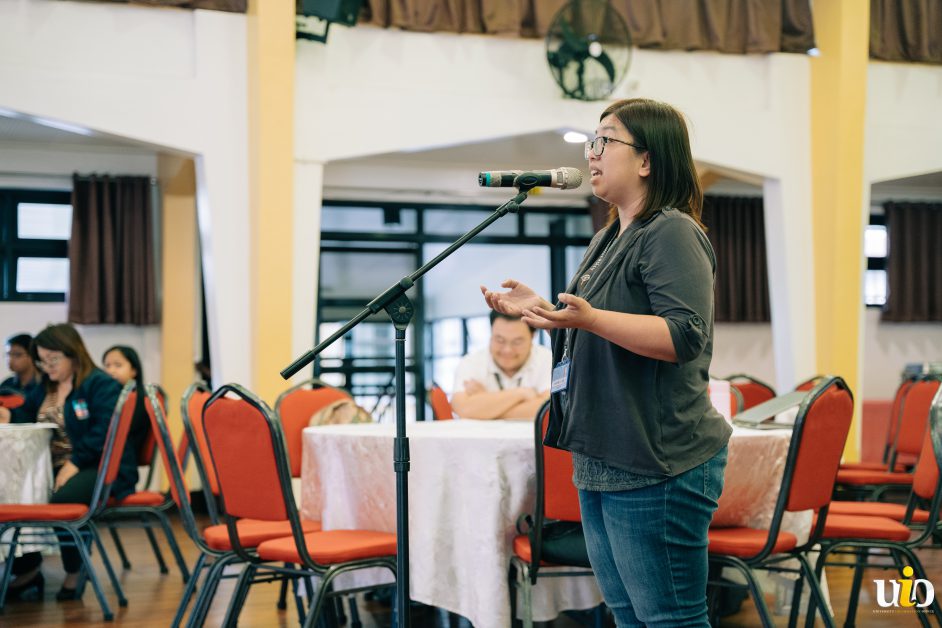
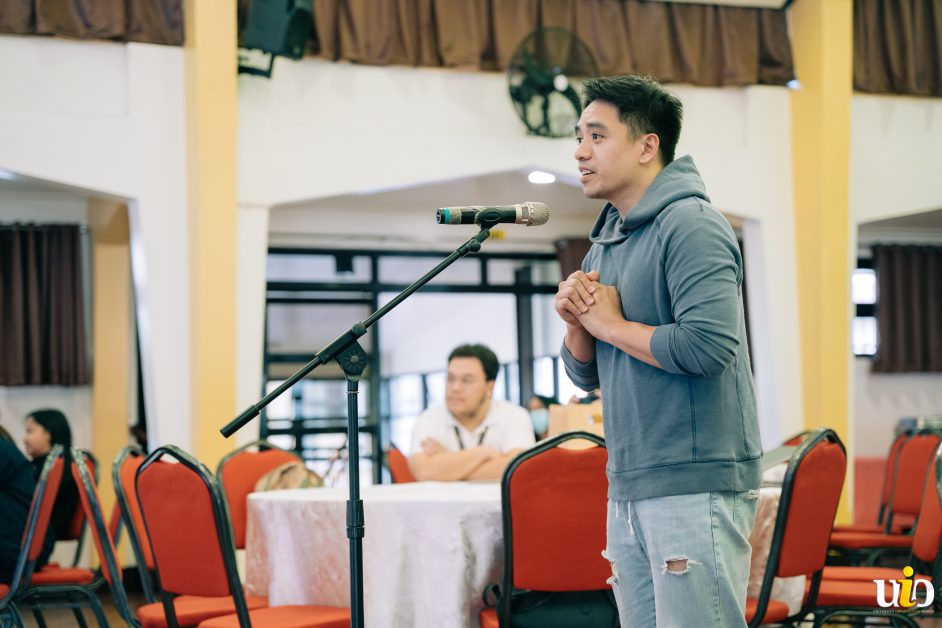
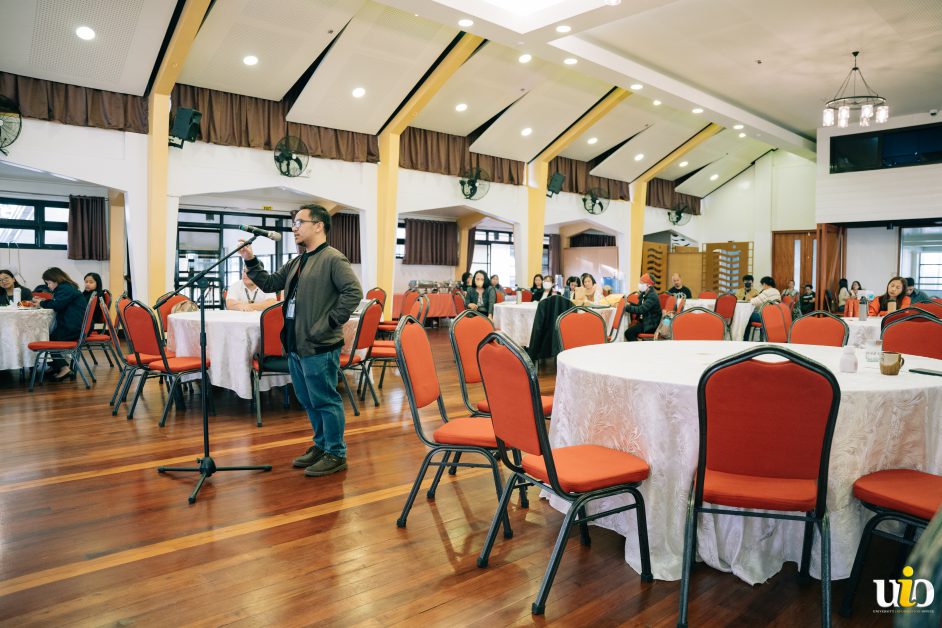

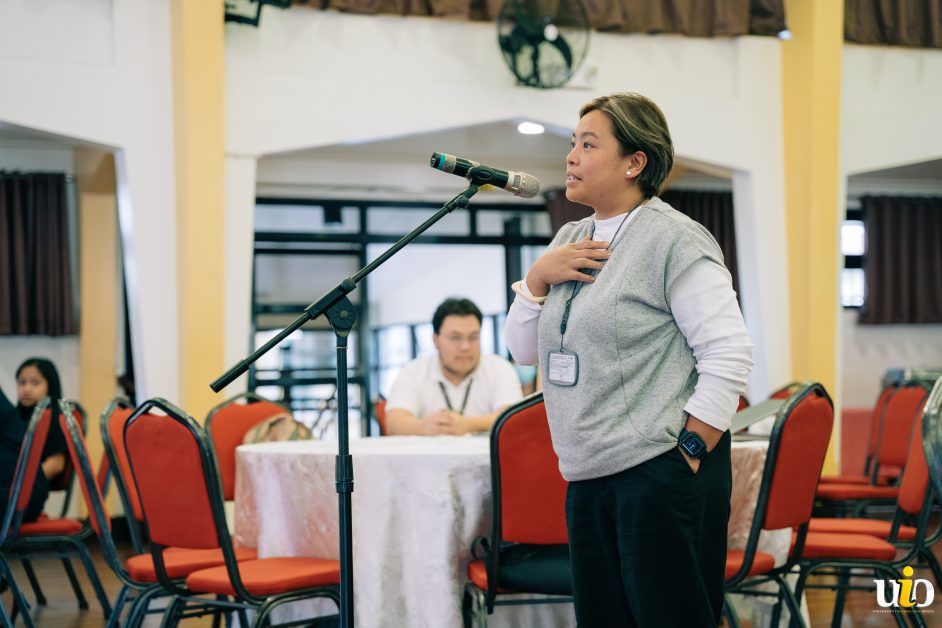
Putting a close to the training session, Dr. Felina P. Espique, Vice President for Academic Affairs of Saint Louis University, affirmed that the day’s event provided groundbreaking insights and practices that move and inspire academicians and researchers to continue working towards innovating something for the community as a “beacon of positive change.” Dr. Espique said that research enthusiasts and innovators should be guided by principles based on environmental stewardship and social responsibility and to “seek the right answers that lead to sustainable solutions in the spirit of sustainability beyond limits.”
